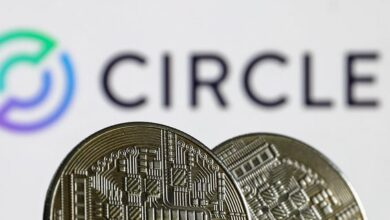European Parliament Committees Lift Restrictions on Crypto Payments from Self-Hosted Wallets

Major committees within the European Parliament have made significant amendments to the proposed Anti-Money Laundering Regulation (AMLR), notably removing the 1,000 euro limit on cryptocurrency payments originating from self-hosted wallets.
This decision marks a major shift in the regulatory landscape surrounding cryptocurrencies within the European Union (EU).
On March 19, the Economic and Monetary Affairs Committee and the Civil Liberties, Justice and Home Affairs Committee of the European Parliament jointly passed the AMLR, a legislative initiative that had been provisionally agreed upon by the European Council and Parliament in January.
The earlier version of the regulation had included provisions imposing a cap of 1,000 euros on transactions conducted through self-hosted crypto wallets, along with requirements for identity verification checks on recipients of funds using such wallets. However, these restrictions have been scrapped in the revised version of the AMLR.
Under the updated regulations, Crypto-Asset Service Providers (CASPs), including cryptocurrency exchanges, are mandated to perform “customer due diligence” procedures, including identity verification checks, on users engaging in transactions exceeding 1,000 euros.
The AMLR operates in conjunction with existing legislation such as the Markets in Crypto-Assets (MiCA) laws, reinforcing prohibitions on CASPs from offering accounts to anonymous users or facilitating transactions involving privacy coins like Monero (XMR), which conceal transaction details.
Moreover, CASPs are required to implement “mitigating measures” for transfers between their platforms and self-custody wallets, where users control their private keys. These measures include verifying the identity of the exchange wallet holder when funds from a self-custody wallet are transferred.
The legislation also imposes restrictions on cash payments, limiting transactions to $10,800 (10,000 euros), with member states of the EU having the discretion to set lower limits. Additionally, anonymous cash payments exceeding $3,240 (3,000 euros) are prohibited.
The full implementation of the AMLR is anticipated within a three-year timeframe, expected to be finalized by 2027, pending approval from the EU Council and the European Parliament plenary, scheduled to convene on April 10.
Criticism of the AMLR has been voiced by certain quarters, notably by Patrick Breyer, a member of the European Parliament representing the Pirate Party Germany. According to Cointelegraph, Breyer denounced the legislation, arguing that it compromises economic independence and financial privacy, emphasizing the right to transact anonymously as a fundamental principle.
The regulatory measures introduced by the EU have elicited a varied response from the cryptocurrency community. While some view the regulations as necessary steps to combat illicit activities, others express concerns regarding potential encroachments on privacy and limitations on economic transactions.
Daniel “Loddi” Tröster, host of the Sound Money Bitcoin Podcast, highlighted practical challenges posed by the new legislation, particularly its impact on donations and the broader implications for cryptocurrency utilization within the EU.
He raised apprehensions about the stifling effect of the regulations on innovation and economic activity in the region.





